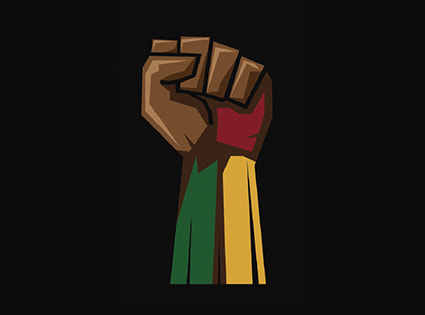Virtual “resistance” festival for Black History Month
February 1 kicks off Black History Month in the United States. A commemoration to “honor the too-often neglected achievements of African Americans in every area of endeavor throughout our history,” in the words spoken in 1976 by Republican President Gerald Ford, when it was finally, officially recognized by the federal government.Every year in February, Black History Month has been commemorated since 1970 in the United States (its origins date back to 1926) and in Canada since 1995. Similar celebrations have taken place in other countries during October: United Kingdom, since 1987; the Netherlands and the Republic of Ireland, since 2014.
This 2023, Black History Month has innovative virtual programming on “Black Resistance.” A festival of events that will address such “resistance” in the arts, press and church, because “our struggle is not the struggle of a day, a week, a month or a year. It is the struggle of a lifetime,” according to Congressman and African American civil rights activist John Lewis, who died in 2020. The forerunner of Black History Month was historian Carter G. Woodson, in 1926, in collaboration with the Association for the Study of Negro Life and History. February was chosen because it was the month in which the sixteenth president of the United States, Abraham Lincoln, and abolitionist leader Frederick Douglass, honored by black communities since the late nineteenth century, were born. The aim was to encourage the teaching of Black American history in the nation’s public schools. Black History Month was first celebrated in 1970 but it was not officially recognized by the federal government until half a century later, during the U.S. Bicentennial celebration in 1976. In Alaska, the population of African descent is the second smallest minority (3.6% of the total population, less than 26,500 people), only more numerous than those from the Pacific Islands (1.6%), according to the latest update from the Census Bureau in 2020. This statistic sets Alaska apart from the rest of the country, where African Americans are the largest minority. But this is not the only difference for black Alaskans. “For more than 150 years, black individuals and families have settled or transited Alaska. They patrolled the seas, built roads, served in the military, opened businesses, fought injustice, won political office, created works of art and forged communities,” said the presentation of the exhibit “Black Lives in Alaska: journey, justice, joy,” held at the Anchorage Museum from 2021-2022. “Alaskans of African descent have, at times, faced racial discrimination, but they have also found opportunities that eluded them elsewhere.” Much work remains to be done. The teaching of Black History has been banned in seven states because it “makes people uncomfortable,” ASALH (Association for the Study of African American Life and History) charges. In 2017, then-Republican Gov. Bill Walker recognized the merits of black Army Corps of Engineers soldiers who, in 1942, built the Alaska-Canada Highway. Many of them had never seen snow or experienced such cold. It took 75 years for such recognition. For more history about Black Alaskans, visit blackinalaska.org. |
